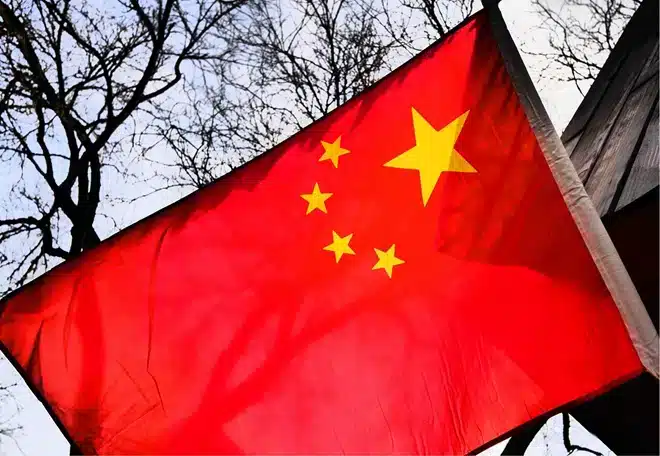Collective Action in Japanese Labor Law: The Boundary between Legal Protection and "Legitimacy"

In the framework of Japanese labor law, the right to collective action for workers is one of the fundamental rights guaranteed by the Constitution of Japan. Article 28 of the Japanese Constitution ensures the rights of workers to collective organization, collective bargaining, and collective action. These rights form the foundation for workers to negotiate labor conditions on an equal footing with employers. However, the exercise of the right to collective action, especially when it involves dispute actions such as strikes, is not unlimited. For such action to be legally protected, it must be deemed ‘justifiable.’ If a collective action is judged to exceed the bounds of ‘justifiability,’ it loses legal protection, and the participating labor unions or members may be subject to civil liability for damages, criminal penalties, or disciplinary actions by the company. Therefore, it is crucial for business managers and legal professionals to accurately understand the legal boundaries of what constitutes ‘justifiable’ collective action and what exceeds it, from the perspectives of labor management and risk management. This boundary is not only defined by the letter of the law but has also been concretely shaped by a wealth of court precedents over the years. This article organizes the basic concepts of collective action under Japanese labor law, explains the legal protections afforded to justifiable collective actions, and, focusing on court precedents, provides a detailed analysis of the specific criteria used to determine the justifiability of collective actions.
The Basic Concepts of Collective Action Under Japanese Labor Law
The “right to collective action” guaranteed by Article 28 of the Japanese Constitution encompasses a variety of activities undertaken by labor unions to achieve their goals. These activities can be broadly categorized into two types: “union activities” and “dispute actions.”
Firstly, “union activities” refer to the general day-to-day activities of labor unions, excluding dispute actions. Specifically, this includes holding union member meetings, distributing flyers and other publicity activities, publishing a union magazine, or wearing union badges. While these activities do not usually directly hinder the operation of a company’s business, they may raise issues of coordination with the employer’s facility management rights when conducted within company premises.
Secondly, “dispute actions” are acts intended to disrupt the normal operations of a company to enforce the demands of the labor union. This forms the core of the right to collective action, aiming to advance collective bargaining favorably by exerting economic pressure on the employer. The Japanese Labor Union Act defines dispute actions as “acts such as a concerted strike, slowdown, lockout, or other acts that the parties to labor relations perform with the purpose of enforcing their claims, and acts in opposition to them, which hinder the normal operation of business.” Typical dispute actions include the following:
- Strike (Concerted Strike): An act where workers collectively refuse to provide labor.
- Slowdown (Sabotage): An act where workers intentionally reduce the efficiency of their work.
- Picketing: Monitoring at entrances and exits of a workplace to ensure the effectiveness of a strike and to call for cooperation from other workers and customers.
- Occupation of the Workplace: An act where workers collectively stay at the workplace and partially or completely exclude the employer’s management.
These dispute actions directly impact a company’s production activities and service provision, and therefore, their legitimacy is judged much more strictly compared to union activities. In assessing legal risks, the first step is to accurately determine whether the labor union’s actions fall within the scope of regular “union activities” or constitute “dispute actions” intended to hinder operations.
Legal Protection for Legitimate Collective Actions Under Japanese Labor Law
In Japan, labor law provides strong legal protection for collective actions by labor unions, but only when such actions are deemed “legitimate.” This protection consists of three pillars: exemption from criminal liability, exemption from civil liability, and prohibition of disadvantageous treatment. These protections do not apply to collective actions that fail to meet the criteria of legitimacy. In other words, “legitimacy” acts as a legal switch that determines whether these legal protections come into effect or not.
Criminal Immunity
The first layer of protection is exemption from criminal liability. Article 1, Paragraph 2 of the Japanese Labor Union Law applies the provisions of “justifiable acts” as defined in Article 35 of the Japanese Penal Code to legitimate collective actions. As a result, even if a strike disrupts a company’s operations, no crime is committed under offenses such as obstruction of business by force (Article 234 of the Japanese Penal Code), provided that the strike is a legitimate dispute action. Similarly, acts of entering a business premises for legitimate picketing or workplace meetings are not subject to prosecution for trespassing (Article 130 of the Japanese Penal Code). However, there are clear limits to this criminal immunity. The proviso of Article 1, Paragraph 2 of the Japanese Labor Union Law states that “the use of violence shall not be interpreted as a legitimate act of a labor union under any circumstances,” clearly excluding violent acts from protection.
Civil Immunity
The second layer of protection is exemption from civil liability for damages. Article 8 of the Japanese Labor Union Law stipulates that “an employer cannot claim compensation from a labor union or its members for damages incurred due to a legitimate strike or other dispute actions.” Strikes and work slowdowns constitute a breach of the duty to provide labor under a labor contract, and normally an employer could claim damages from the workers. However, when a dispute action is recognized as legitimate, this provision negates the employer’s right to claim damages. This allows labor unions and their members to exercise their rights without legal responsibility for losses in business profits and other damages incurred by the company due to legitimate dispute actions.
Prohibition of Disadvantageous Treatment
The third layer of protection is against disadvantageous treatment based on participation in legitimate collective actions. Article 7, Item 1 of the Japanese Labor Union Law prohibits employers from dismissing workers or treating them unfavorably for being union members or for engaging in legitimate union activities, classifying such actions as “unfair labor practices.” Therefore, it is not permissible for an employer to discipline an employee or treat them unfavorably in performance evaluations for participating in a legitimate strike or for engaging in legitimate union activities. This provision is a crucial safeguard to ensure that workers can exercise their constitutionally guaranteed right to collective action without fear of retaliation from their employer.
Criteria for Determining the Legitimacy of Collective Actions Under Japanese Law
Whether collective actions can enjoy the aforementioned legal protection in Japan depends on whether the actions are deemed “legitimate.” When assessing the legitimacy of collective actions, particularly dispute acts, Japanese courts do not rely on a single criterion. Instead, they evaluate the legitimacy comprehensively based on four aspects: ① the entity involved, ② the purpose, ③ the procedure, and ④ the means and manner. If any of these elements are found to lack legitimacy, the entire collective action may be deemed illegal.
Legitimacy of the Acting Entity
The entity carrying out a dispute action must be a labor union that is, in principle, eligible to be a party to collective bargaining. Furthermore, the dispute action must be conducted following a formal institutional decision as stipulated in the labor union’s constitution (for example, a decision made by a vote of the union members). Actions taken by a subgroup, such as the union’s executive committee, without the backing of the entire union’s will—commonly known as “wildcat strikes”—are not recognized for their legitimacy and are deemed illegal under Japanese labor practices.
Legitimacy of Objectives
The objectives of dispute actions must be related to matters that can be resolved through collective bargaining, such as the maintenance and improvement of wages, working hours, and other labor conditions. Actions that deviate from these objectives are deemed to lack legitimacy.
Of particular concern are “political strikes,” which are strikes conducted to protest or support government policies or the enactment or amendment of laws. The Supreme Court of Japan has consistently denied the legitimacy of strikes for such political purposes. This is because the target of the demands is the state or local public entities, and the issues cannot be resolved through collective bargaining with employers. In the 1973 Zen-Nohrin Keishoku Law Case (1973), the Supreme Court ruled that the participation in a workplace assembly by a public service workers’ union in opposition to legislative reform was an illegal political dispute action. Similarly, in the private sector, the Supreme Court ruled in the 1992 Mitsubishi Heavy Industries Nagasaki Shipyard Case that a strike protesting the docking of a nuclear-powered ship was an act with a “political purpose unrelated to the direct improvement of workers’ economic status,” falling outside the scope of protection under Article 28 of the Japanese Constitution, and upheld the company’s disciplinary action against the union officials who led the strike.
Furthermore, strikes that aim to unilaterally achieve the union’s demands through dispute actions rather than through consensus-building via collective bargaining, known as “self-enforcement type” strikes, are also considered to lack legitimate objectives. In the 2021 Kansai Gaidai University Case, the Osaka High Court ruled that the act of university faculty members unilaterally refusing to teach more classes than the number demanded by the union, citing a deadlock in negotiations (a designated strike), deviated from the purpose of promoting collective bargaining and was an attempt to enforce the union’s demands by their own power. The court thus denied its legitimacy and upheld the university’s disciplinary action.
Legitimacy of Procedures
The procedures leading up to the initiation of a dispute action are also a crucial element in determining its legitimacy. Procedures that violate the principle of good faith between labor and management can cause the action to lose its legitimacy.
A typical example is the violation of the “duty of peace” stipulated in a labor agreement. It is common for labor agreements to include a “peace clause” that specifies that no dispute actions will be taken over certain matters during the effective period of the agreement. Dispute actions taken in violation of this clause constitute a breach of the obligations under the agreement and are deemed illegitimate. In the 1968 Konan Bus case (Supreme Court of Japan), the Supreme Court provided a framework indicating that disciplinary actions based on participation in a dispute action that violates the duty of peace are permissible because such actions lack legitimacy. This demonstrates that a violation of the duty of peace is not merely a contractual breach but a significant factor that affects the legal evaluation of the dispute action itself.
Furthermore, “surprise strikes” conducted without any notice to the employer also raise questions about the legitimacy of the procedures. The mere fact of no prior notice does not immediately render the action illegal; however, if it causes unforeseen and significant damage to the employer’s business operations, it may be deemed illegitimate due to a violation of the principle of good faith. This judgment becomes more stringent in businesses with a high level of public interest. In the 2001 National Railway Chiba Motive Power Union case (Tokyo High Court), despite the railway company having announced the strike start time, the court ruled that the strike was illegal and lacked legitimacy because it was implemented 12 hours earlier with only a five-minute notice, causing significant social confusion by suspending numerous train services.
Legitimacy of Means and Manner
The specific means and methods of dispute actions must also fall within the range socially acceptable. Particularly, actions that infringe upon an employer’s property rights or personal freedom exceed the bounds of legitimacy.
As stipulated in Article 1, Paragraph 2 of the Japanese Labor Union Law, violence is never justified, regardless of the circumstances. Picketing is considered legitimate as long as it remains within the scope of peaceful persuasion activities. However, physical acts such as forming a scrum to prevent people from entering or exiting, or blocking the passage of vehicles, are deemed illegitimate and may constitute coercion or obstruction of business under Japanese law.
Occupying an employer’s facility, known as “workplace occupation,” or workers conducting production activities in place of management, referred to as “production control,” are seen as extremely serious infringements on the employer’s property rights. In the 1973 (Showa 48) National Railway Kurume Station case decision, the Supreme Court of Japan ruled that union members occupying the signal box, the heart of railway operations, during a strike excluded the employer’s facility management rights and deviated from the range of legitimate dispute actions. Similarly, production control, where workers exclude the management and occupy factory facilities to autonomously carry out everything from production to sales, is an act that denies the employer’s management rights itself. Consistently, its legitimacy has been denied in legal precedents. These cases illustrate a clear judicial line that the right to collective action guarantees the “right not to provide labor,” not the “right to control the property of others.”
Legal Consequences of Unjustifiable Collective Actions Under Japanese Law
When a labor union’s collective action is deemed illegal for failing to meet any of the established criteria for legitimacy, the union and its participating members lose complete legal protection, and the employer is entitled to take multiple legal countermeasures.
Firstly, the employer can claim damages against the labor union based on tort for losses incurred due to the illegal collective action. Since the protection of civil immunity is lost, damages related to the illegal act, such as lost profits due to strikes, costs for securing replacement personnel, and repair costs for damaged equipment, become compensable. In the National Railway Chiba Motive Power Union case, the court ordered the union to pay over 12 million yen in damages. In some instances, individual union officers who played a leading role may also be held accountable.
Secondly, the employer can discipline employees who participated in the illegal collective action according to the company’s work rules. While participation in legitimate dispute actions is protected against unfair labor practices, participation in actions lacking legitimacy can be considered mere job abandonment, violation of work orders, or disruptive conduct to corporate order. Therefore, disciplinary actions such as reprimands, salary reductions, suspensions, and even disciplinary dismissal depending on the severity of the case, can be legally effective. As demonstrated in the judgments of the Mitsubishi Heavy Industries Nagasaki Shipyard case and the Kansai Gaidai University case, courts have deemed disciplinary actions against employees who led or participated in unjust dispute actions as valid.
Thirdly, without the protection of criminal immunity, participants may be subject to criminal penalties depending on the nature of the act. For example, violent acts carry the risk of being prosecuted for assault or injury, while exclusive occupation of the workplace or forceful picketing may lead to charges of obstruction of business or trespassing.
Conclusion
Japanese labor law robustly protects the collective action rights of workers as an important constitutional right. However, this protection is not unconditional and is granted through a strict filter of “legitimacy.” As the numerous case studies analyzed in this article demonstrate, Japanese courts consistently refuse to grant legal protection to collective actions that exceed the scope of labor conditions, contravene good faith procedures, or infringe upon the essential rights of employers. From a corporate management perspective, it is crucial to calmly analyze, based on objective criteria from precedents, whether a dispute with a labor union falls within the range of legitimacy or deviates from it. Determining the presence or absence of legitimacy is the first step in judging the legal validity of countermeasures such as claims for damages or disciplinary actions and protecting the legitimate rights of the company.
Monolith Law Office has a wealth of experience in handling labor-management disputes surrounding collective actions, as discussed in this article, for a multitude of clients within Japan. Our firm is home to several English-speaking attorneys with qualifications not only in Japanese law but also in foreign jurisdictions, enabling us to provide clear and strategic legal services for complex Japanese labor law matters faced by companies with international operations. We support your company at every stage, including negotiations with labor unions, legal assessments of collective actions, and the formulation of concrete response strategies in the event of a dispute.
Category: General Corporate





















